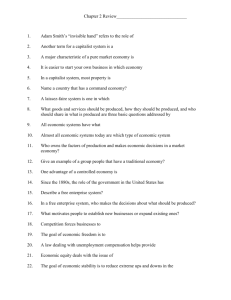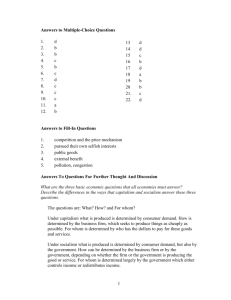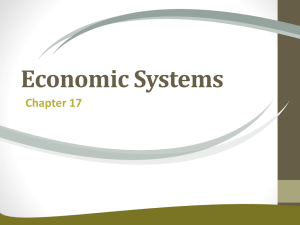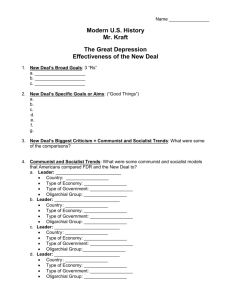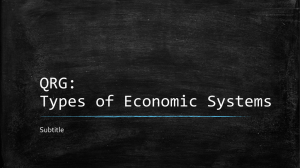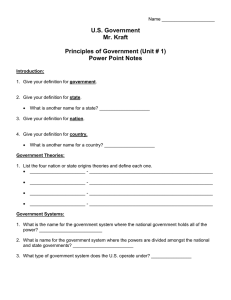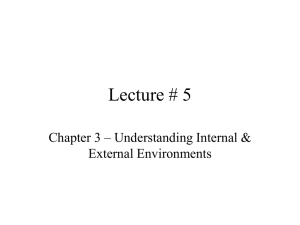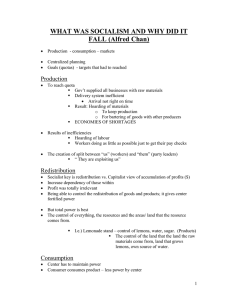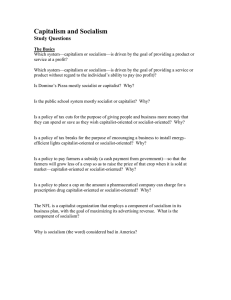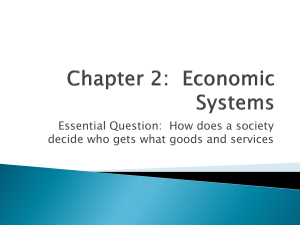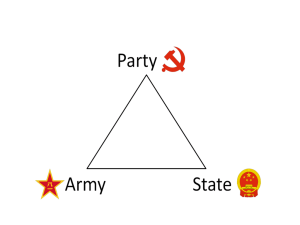Economic Systems
advertisement
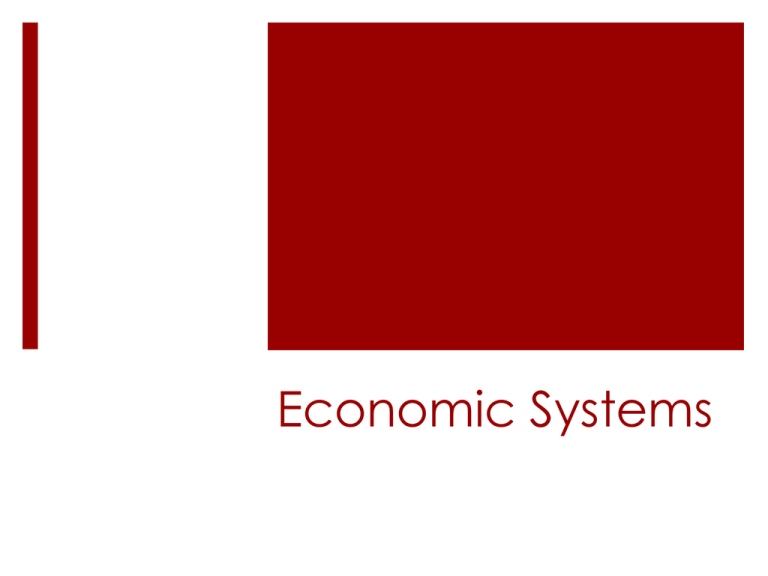
Economic Systems 3 Economic Systems 1. Communist/Command Economy 2. Socialist/Mixed Economy 3. Capitalist/Free Market or Free Enterprise Free Enterpise/Capitalist A free enterprise system is a market economy where independent producers supply goods and services in response to consumer demand. Both supply and demand are affected by prices. The system has four characteristics: economic freedom, voluntary exchange, private property, and profit motive. Socialist system/Mixed Economy A socialist system is a market economy in which government owns some factors of production yet private ownership of small scale business is allowed. Communist/command A communist system is characterized by collective or state ownership of the means of production. Government, rather than individuals, owns and controls all resources and economic decision, resulting in no economic freedom, no private ownership and no profit motive. Benefits of a U.S. Capitalist/free enterprise system Individuals and businesses have the freedom to operate and compete with minimal government regulation Private ownership of land, minerals, manufacturing plants, goods and services Opportunities for innovativeness and inventiveness Opportunities to earn a profit Individuals may choose how to provide their own labor within the labor market Types of Industries Agriculture refers to the cultivation of land or ranching; examples include farming; ranching; cultivation of coffee, tea, sugar, and bananas Wholesale industry acts as a middleman in the industrial process, taking the products from the producers, sometimes packaging them, and selling them to retailers; examples exist in every industry Retail refers to the sale of goods individually or in small quantities to consumers; examples include the sale of clothing, furniture, foodstuffs, etc. Manufacturing refers to the production of tangible goods (things you can touch) by manual labor or by machinery, generally on a large scale; examples include the manufacturing of cars, airplanes, weapons, steel, chemicals, computers, electronics, medical equipment, and furniture Service Industries provide labor-intensive work (things you can not touch) that does not ultimately result in a tangible product; examples include restaurants, doctors, nurses, lawyers, teachers, banking, tourism, salespeople, call centers, and entertainment
